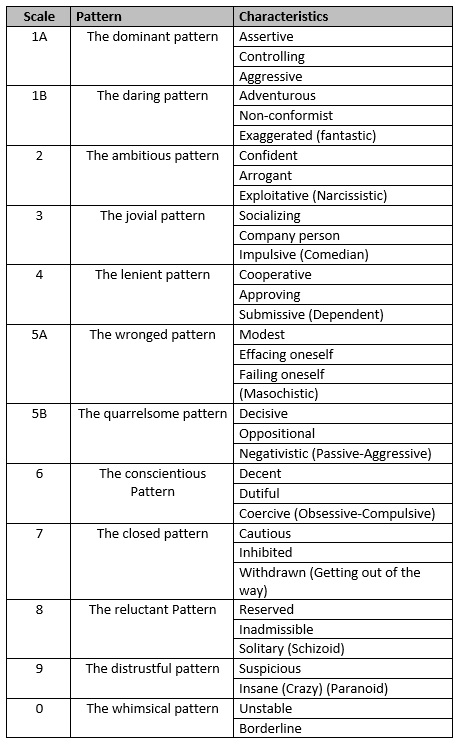Author: Manu Steens
In this contribution I write my own opinion, not that of any organization
The burning question
Sometimes people wonder who would be a suitable crisis manager or spokesperson, or crisis information manager or crisis communication manager, and so on.
In effect, one asks, “Is my character suitable? Am I the right ‘type’?”
Literature findings
As indicated in most of the literature, questions are usually asked in teams about competences and talents, rather than about character types. That question is usually dodged. The reason for this is that you can develop competencies and you can optimally utilize talents. But a bad character remains a bad character. A personality is fully formed by the time the person goes to work. One useful personality scale to evaluate candidates on their personality is that of Millon.

My personal view on this
In my view most personalities have character traits that are useful for working in crisis teams and at the CMT.
However, some personality traits are not desired.
That is probably why the question I used to ask consultants “Who is suitable to participate in a crisis team?” wasn’t the best question. A better question is “Who is not suitable to participate in a crisis team?”
So a you should not use a personality scale to find an ideal personality for a particular position when dealing with a crisis.
It is however useful to use such scales to prevent certain people with certain personality traits to have an (important) place in one of the crisis teams.
In other words: you do not want certain personality traits or only with very low scores.
Personality traits where I would like to see low scores are:
- Unstable
- Borderline
- Insane
- Suspicious
- Inadmissible – Aloof
- Solitary (Schizoid)
- Negativistic (Passive – Aggressive)
- (Dependent)
- Impulsive (Comedian)
- (Fantastic)
- Aggressive
That may be different from one organization to another.
Good to know
What you need to know is that no one is just a pure type, everyone has a number of different traits, which you can put on a scale from 0 to 40 according to the personality scales and gradations of the ‘Millon inventory of diagnostic criteria’. To do this exercise properly, it is best to invoke a specialist.
The benefits include preventing the collaboration from souring, people hurting each other, time they lose with pointless discussions after nonsensical proposals, collaboration becomes impossible or a crisis team member drops out prematurely.

